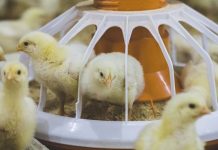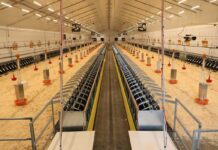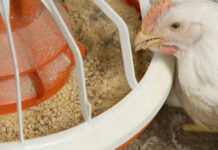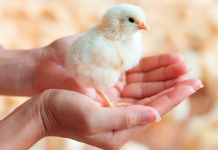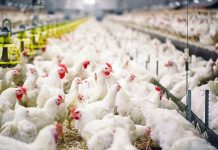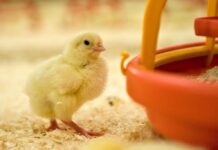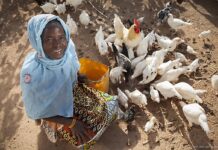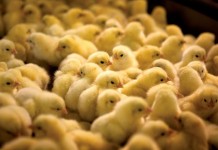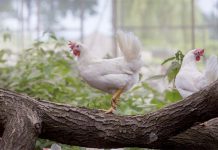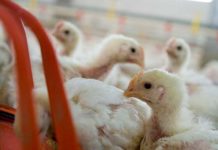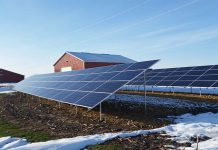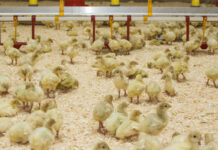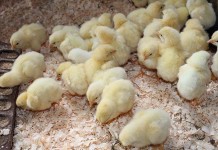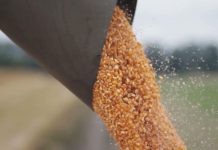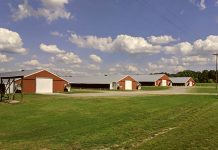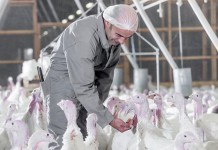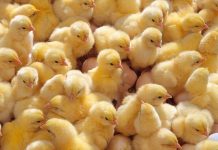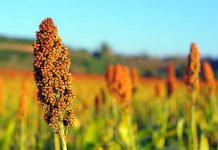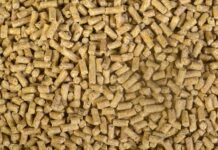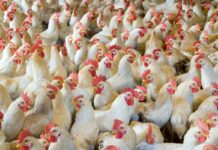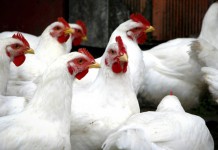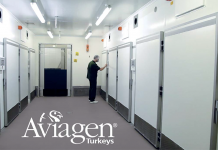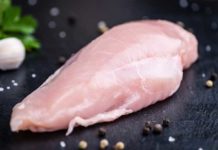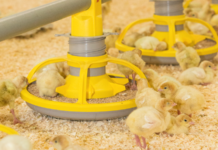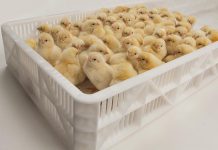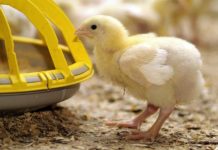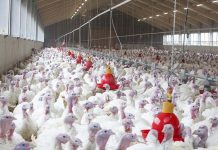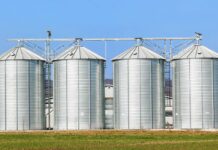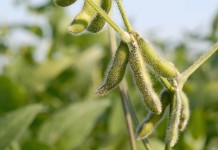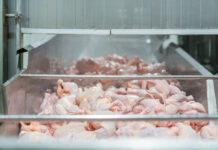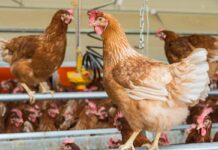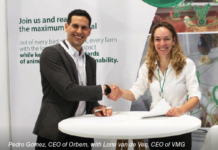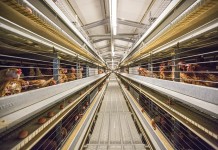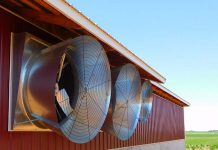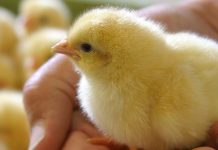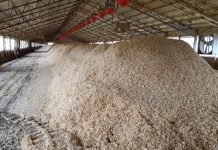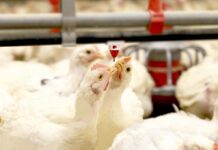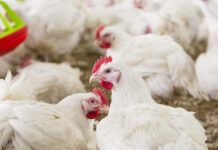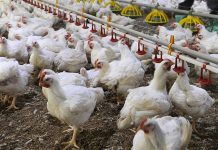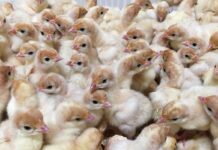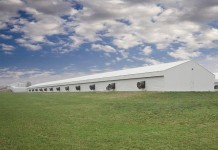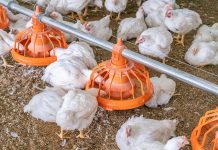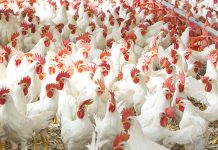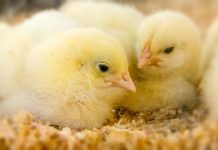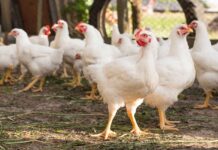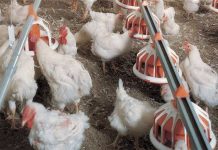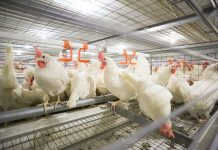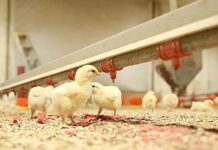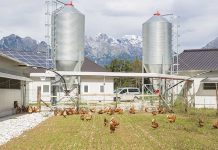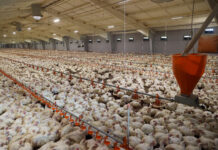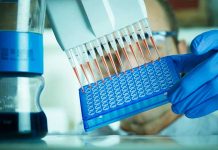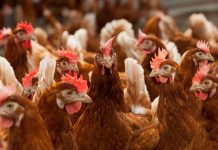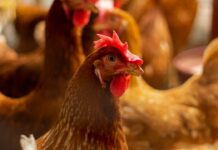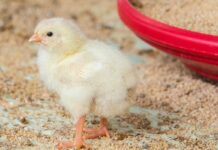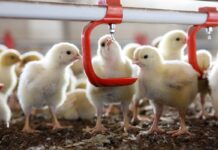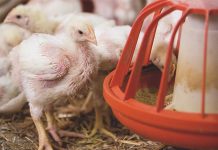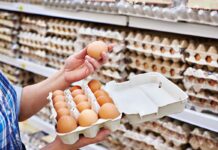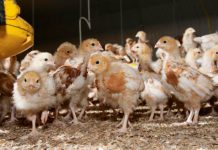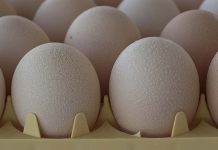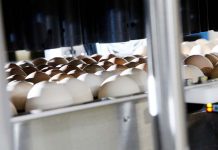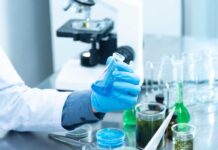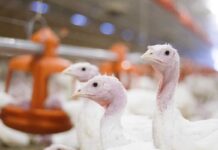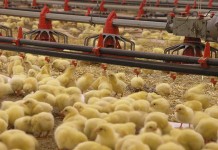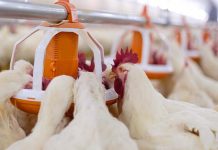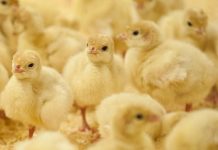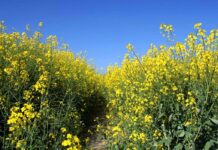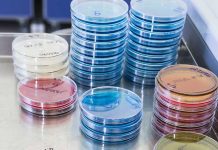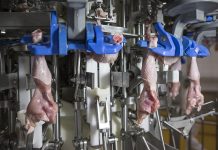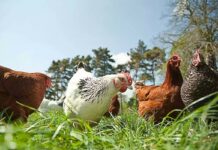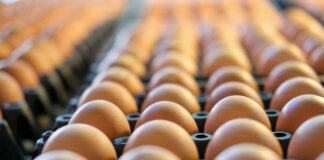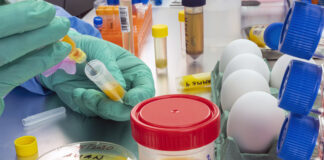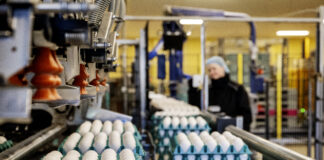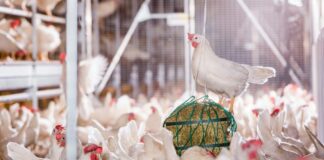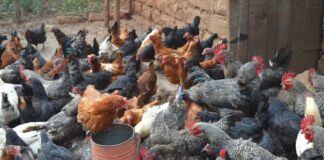Development and evaluation of probiotics
As restrictions to antibiotic growth promoters (AGP) have become more prevalent, producers have turned to several technologies as probiotics - Direct Fed Microbials to...
Challenges and opportunities in establishing a new turkey parent stock operation in a remote...
The Russian turkey market has shown substantial growth during the last decade with new and very large companies willing and able to invest considerable...
Dietary approaches to control Necrotic Enteritis in broilers
Necrotic Enteritis (NE) occurs in broilers due to an overabundance of C. perfringens and is usually associated with predisposing factors which include coccidial challenge,...
Jamesway’s Webinar talking about the Hatcher
The hatcher is often the forgotten sister of the incubator. Most presentations focus on getting everything right in the incubator, assuming that if the incubation...
The importance of fresh air
Vostermans Ventilation is addressing the need for even distribution of fair and heat in the poultry house, to obtain an optimal uniform microclimate on...
The European Poultry Meat Sector commits to develop a Sustainability Charter
During the General Assembly of AVEC – The European Poultry Meat Association – members committed to develop a Sustainability Charter which will be published...
A practical approach to broiler breeder management in the absence of beak treatment –...
In the absence of beak treatment management strategies, which ensure appropriate bird development and growth and the provision of adequate environment and stimuli, which...
Gaining a better understanding of incubation in a hatchery
The contemporary hatchery is a complex installation. The core part is the incubators, supported by the devices that facilitate their function and auxiliary machines...
Breeding for a sustainable industry
As a breeding company, there is a misconception that we only select for traits that have a clear, direct economic impact: selection for increased...
Research examines different dietary treatments for woody breast
USPOULTRY and the USPOULTRY Foundation announce the completion of a funded research project at Auburn University in Auburn, Alabama, in which researchers examined different...
Meyn launches the new Opening machine 240 with the patented cutting mechanism
The next generation Meyn Opening machine 240, works with a “Swivel” movement to ensure an exact cut to reduce intestine damage at high speeds,...
A diagnostic laboratory perspective for pathogen detection
Detection of infectious diseases can generally be broken down into laboratory detection of the pathogen or detection of the immune response to the pathogen....
Solar energy ensures cost-efficiency
Solar energy radiation means revenues – at least for farmers who have successfully harnessed renewable energies. However, with the latest amendment to the Renewable...
Flip-overs: causes and solutions in brooding
The poult start is an extension of the hatching process. The whole process, including poult placement, is only as strong as its weakest link.
William...
Incubation temperatures influence muscle growth and energy in broiler embryos
In ovo embryogenesis in broiler can be modulated by alteration of external factors, like the incubation temperatures, as shown in several publications.
Embryonic myogenesis in...
Improving feeding efficiency with innovating products
At Trouw Nutrition they have focused their innovation in the poultry business on finding new ways of achieving improved feeding efficiency and enhanced performance...
An alternative method to fight Avian Influenza Virus
A recent project was completed at the University of Iowa, Iowa City, Iowa, in which researchers developed a mobile system that can inactivate Avian...
Common global poultry welfare practices
A recent article by Hendrix Genetics detailed the creation and roll out of a structured poultry welfare program for all species offered by the breeding company.
The...
Minimizing antibiotic use in broiler production
Many countries are being asked to reduce or eliminate antibiotic use in poultry, due to growing concerns about the use of antibiotics in food-producing...
Cage free pullet management
The conditions in cage free systems differ from the traditional cage housing systems and require a different management approach. Alternative production systems can be...
Energy utilization in broilers fed a sorghum-based diets supplemented with phytase and carbohydrases
This study was conducted to evaluate the endogenous enzyme activities and energy utilization of broilers fed sorghum-based diets supplemented with phytase and carbohydrases
Broilers were...
Barley in pelleted broiler starter diets: effects of carbohydrase supplementation and steam-conditioning temperature
The effect of pelleting barley-based diets on bird performance and nutrient utilisation depends, in part, on the conditioning temperature (CT) used. The influence of...
Clinical coccidiosis in broilers with concurrent infection of Eimeria maxima and Eimeria praecox
Coccidiosis is a complex disease in chickens caused by protozoan parasites in the genus Eimeria. As Eimeria species are ubiquitous in poultry facilities, coccidiosis...
On free amino acids – Their role in starch and protein digestive dynamics
The quantity of glucose and amino acids absorbed from the small intestine is a function of dietary concentrations, feed intakes and digestibility coefficients. Moreover,...
SPIDES, short periods of incubation during egg storage
Why SPIDES is so important in incubation? If hatching eggs are stored for more than a week before being set in an incubator their...
New method to detect woody breast fillets
USPOULTRY and the USPOULTRY Foundation announced the completion of a funded research project at Auburn University in Auburn, Alabama, in which researchers found a...
Supplementation of a protected complex of biofactors and antioxidants on the gene expression and...
The objective of this study was to evaluate the dietary supplementation of a protected complex of biofactors and antioxidants P(BF+AOx) on the expression of...
To feed or not to feed? That is the question. Is the early feeding...
Development of the avian embryo, or chick, can be categorized into one of two strategies designed to meet very different physiological and biological needs....
Effects of probiotic bacillus Amyloliquefaciens H57 on performance and intestinal microbiota of chickens
Direct fed microbials are a potential probiotic alternative to antibiotic
growth promoters for improving animal production and preventing enteric pathogen
infections. We are studying the effects...
The value of digestibility coefficients and protein
At all times and for all human cultures animal protein took an important part of nutrient supply and has been always of a high...
Performance, intestinal morphology and antioxidant status of broilers fed o-regano essential oil or an...
In this study, the effect of an oregano essential oil, or a blend of formic and propionic acids and essential oil on mineral carriers,...
Replacing soy in broiler diets. Effect on performance, carcass yield and cost of production
The objective of the present study was to evaluate the effect of replacing soybean meal (SBM) in broiler diets on performance, carcass quality and...
Safeguarding processing yield across the primary process
The processing plant is the epicenter of a poultry processing company for being its only utility-generating area, as all the others are cost-generating centers,...
How Early Rearing Environments Shape Laying Hen Performance and Welfare
Successful egg production in table-egg laying hens relies on proper caretaking during the lay phase, yet early rearing is also paramount to achieve performance...
Vencomatic Group and Orbem announce a strategic partnership for in ovo sexing of poultry...
Vencomatic Group (VMG), a family-owned supplier of innovative solutions for the international poultry industry, and Orbem, a leading deep-tech imaging and AI technology company,...
Housing systems in laying hen husbandry- First part
A status report
This analysis is an abridged version of a report which the author prepared for the International Egg Commission (IEC) in London, UK.
In...
Does negative pressure created by exhaust fans affect poultry?
Most poultry are raised in houses that use a negative pressure ventilation systems to aid in maintaining air quality, house temperature, and air movement....
Navel practicalities
A well-closed navel is one of the most important and easily visible signs of chick quality. In a good quality chick, the navel is...
Infectious bronchitis virus (IBV) vaccines produced in eggs have unpredictable mutations
Scientists at The Pirbright Institute have shown that infectious bronchitis virus (IBV) vaccines produced in eggs have unpredictable mutations which may be prone to...
Methods for recovery and quantitation of viral nucleic acids from broiler litter
There is a well-recognised problem with both the supply of broiler litter material in some regions, and with the disposal of spent litter. This...
Waterline cleaning between broiler batches: a key to better bird health and performance
Clean water is essential for poultry—not just as a source of hydration but as a vital part of nutrition, digestion, and temperature regulation. In...
A synergistic herbal alternative combination: curcumshield vs poultry infections – a broad-spectrum study
Introduction
In the case of bacterial infections, various categories of antibiotics – especially synthetic ones – are widely used as broad-spectrum bacteriostatic and bactericidal agents....
Active and passive Salmonella surveillance systems
Two surveillance systems have been established in France for the monitoring of antimicrobial resistance (AMR) in Salmonella enterica subsp. enterica isolated from the agro-food...
Lasers prevent the spreading of the Avian Influenza virus
Wageningen University released their research on a poultry farm that suffered visits from wild waterfowl, which are a source of Avian Influenza virus. The...
The specific requirements and sensitivities of turkey egg incubation
Turkey eggs have a high incubation success rate when all the species-specific areas of incubation are managed correctly. Hence, a suite of incubation equipment...
Enhancing biosecurity using flow analysis and Danish entry concepts
The term Danish entry is commonly used to describe entryways to livestock buildings that help people enter barns in a relatively bio secure way...
Supplementing Bacillus strains in chicken diets
The present study investigated the effects of dietary supplementation of several Bacillus strains on growth performance, intestinal inflammatory and anti-inflammatory cytokines, antioxidants and tight...
The broiler chicken as a signal of a human reconfigured biosphere
Part 1
The first part in the series of two wich analyses the anthropological impact of the chicken from an archaeological/historical point of view: broilers...
Sustainable feed supply for worldwide poultry production
The poultry industry is facing various challenges in its value chain. Production needs to be environmentally sound and social responsible with the prerequisite that...
Dietary calcium, phytate and non-phytate phosphorus, on IP6 degradation in broilers
The effectiveness of phytase is usually determined under phosphorus or both calcium and phosphorus deficient specifications. Phytase efficacy in terms of increasing available or...
New technologies in housing, equipment and computer controls
The poultry housing and equipment industry continues to develop, introducing new technologies in line with trends in modern communications and ventilation systems. As expected...
Influence of age on the standardised ileal amino acid digestibility of maize and barley...
Grains are the major energy sources in broilers. However, they also supply about 40% of the total dietary protein and contribute significantly to the...
Research examines alternative feeding programs and photostimulation periods for broiler breeders
USPOULTRY and the USPOULTRY Foundation announce the completion of a funded research project at the University of Georgia in Athens, Georgia, in which researchers...
Impact of stress on feather cover of laying hens
Feather pecking is a behavior in which individual laying hens peck repetitively at the plumage of conspecifics, causing poor feather. Although FP can be...
Towards practical methods for assessing ILTV vaccine take
In response to ILTV outbreaks, live vaccines are typically administered at 7-14 days of age in drinking water via nipple drinkers which may not...
Managing bird behaviour in organic production systems
This topic is presented on by John Brunnquell, the founder and current president of Egg Innovations, which is the largest exclusive producer of free...
Stepping into barn digitalization
Technification of poultry barns is a growing priority for most producers to support precision farming practices. Although such improvements can ease flock management and...
Host and microbial biomarkers for intestinal health and disease in broilers
New tools can be used to determine the gut health status of animals and to predict animal performance or to make a decision whether...
Microbiological consequences of different housing systems for laying hens, with particular reference to Salmonella...
A significant proportion of human illnesses caused by Salmonella are linked to the consumption of contaminated eggs. In response, substantial government and private industry...
Balancing production efficiency and welfare
Early poultry selection programs for feed efficiency and production traits alone have been proven successful at developing commercial lines of highly prolific layers and...
Using a multi-protease enzyme in poultry diets to improve broilers performance
The present study investigates the effect of protease on the productivity of broilers under reduced crude protein (CP) and amino acid (AA) diet conditions....
Avian influenza diagnostics in foxes provide valuable addition to mammal surveillance
Research by Wageningen Bioveterinary Research (WBVR) and the Dutch Wildlife Health Centre (DWHC) shows that foxes in the province of Friesland can become infected...
Comparing two ELISA kits
Here a comparison of two ELISA kits as been made to assess their efficicacy.
Recombinant turkey herpesvirus vaccines (rHVT) are being widely used for...
Hot weather management and nutrition
Thermoregulation is the ability of birds to maintain their body temperature across a range of environmental temperatures and in hot weather. Turkeys use a...
Training the animal microbiome to degrade fibre with NSPase
A new perspective on the mode of action of fibre-degrading enzymes NSPase.
Increased understanding of NSPase mode of action is presenting a new perspective on...
New animal welfare labelling system
The conclusions of the animal welfare labelling subgroup of the Commission’s Animal Welfare Platform were released. Copa and Cogeca welcomes the main conclusions of...
Effect of two different fibre sources on growth and immune function in grower layer-pullets
This study was conducted to evaluate the effect of two different fibre sources on pullet growth, gut immune tissue, and lymphocyte proliferation of strain...
Maintaining hatching egg quality through good hygiene and handling
The microbiological status of a hatching egg is highest immediately after the egg is laid. The objective, therefore, is to ensure that quality is...
In-ovo vaccination requires good hatchery management
In-ovo vaccination is gaining popularity and is being used in an increasing number of hatcheries. A driving force behind this is the increasing number...
Spirulina platensis Algae, a novel poultry feed additive
Identifying alternative replacements for soybean meal in a high quality and reasonable price is of importance in poultry production and physiological parameters. Spirulina platensis...
LED lights in turkey farms
With the rise of the energy efficient light emitting diode – LED – bulbs in today’s market, there is an opportunity to refine...
Incubation temperature and how it influences chick hatch time and bone ash
With commercial broilers spending up to 30% of their lifespan in the egg, incubation temperature has been linked to some leg weakness issues.
The recommended...
How an automatic flushing system can reduce the use of antibiotics
Consumers worldwide start to worry about the use of antibiotics in livestock production and their effect on human health. Antibiotic-free chicken is increasingly becoming...
Some basic suggestions to improve breeder management
Dr. Keith Bramwell, a former professor in the Department of Poultry Science at The University of Arkansas, and Hatchery Consultant for Jamesway Incubator Company...
Factors that contribute to consistent quality poult starts
The process of egg production, hatching, processing and delivery of a quality poult are all important and stressful points that impact the lives of...
Phytic acid reduction in canola and camelina meals
Canola and camelina meals have been identified as alternative plant protein sources in place of soybean meal for animal feeding. The use of these...
Vaccination of turkey breeders to control Salmonella
Salmonella continues to be a top food safety concern for the turkey industry, the USDA, and the consumer. Salmonella bacteria are the most frequently...
Stork inline thigh filleting up to high capacities
Thigh meat consumption on the rise - a global trend
The market for thigh filleting is opening up, offering plenty of opportunities worldwide. To benefit...
Key global health issues in cage-free and organic laying hens
In USA and Europe there has been a growth in cage-free, free range, and organic production over the last 10 years.
The percentage of all...


